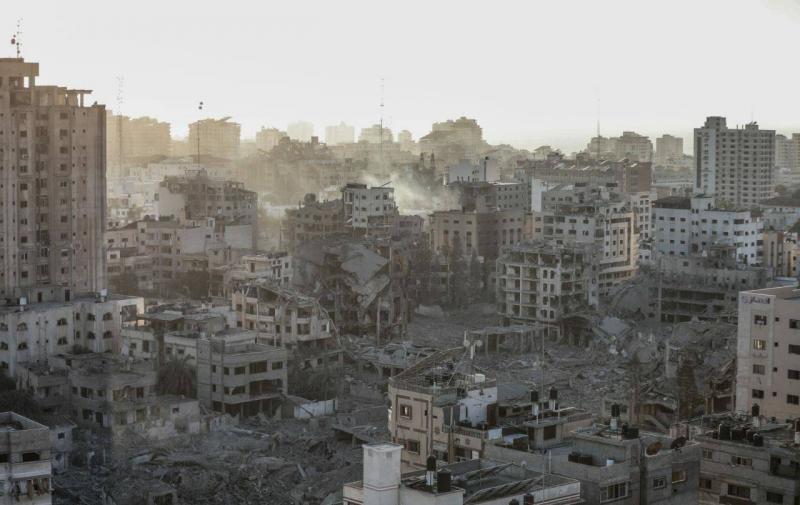Egypt is engaged in discussions with the Palestinian Islamic Resistance Movement (Hamas) and Palestinian Islamic Jihad in an effort to establish a permanent ceasefire in the war with Israel in the Gaza Strip, which has resulted in tens of thousands of deaths and injuries and has devastated the territory controlled by Hamas, displacing most of its 2.3 million residents. Below are the various proposals put forth by Egypt:
### Renunciation of Power
Two Egyptian security sources reported that Egypt suggests Hamas and Islamic Jihad relinquish control in Gaza in exchange for a permanent ceasefire. They added that officials from both Hamas and Islamic Jihad rejected such a proposal. Leaders from the movements publicly denied the claims made by the sources. They insist that the future of Gaza post-war should be determined by the Palestinians themselves, rather than by external pressures. Israel seeks to dismantle the two movements, and aides to Israeli Prime Minister Benjamin Netanyahu stated this means dismantling the military capabilities and administrative powers of the groups and "de-radicalizing" the population of Gaza. It remains unclear whether the proposed removal of the movements from power would meet these demands.
### Phased Ceasefire
The Egyptian security sources indicated that Cairo proposes a multi-phased ceasefire, beginning with an initial temporary phase lasting one to two weeks. This temporary ceasefire could be renewed. According to Palestinian officials, the ceasefire would unfold in three phases: during the first ten days of a humanitarian truce, Hamas would release all women, children, and elderly individuals in its custody. In return, Israel would release a mutually agreed number of Palestinian prisoners from the same categories, stop all military operations, withdraw tanks from the territory, and allow the delivery of food, medical supplies, fuel, and cooking gas, enabling residents to return to northern Gaza.
The second phase involves Hamas releasing all Israeli female soldiers in its detention, while Israel would reciprocate by releasing another group of Palestinian prisoners from its jails. Both parties would exchange bodies that have been held by each side since October 7. The third phase could last a month, and depending on the outcome of negotiations, would see the release of all individuals held by Hamas in exchange for an agreed-upon number of Palestinian prisoners, with Israel withdrawing its tanks from Gaza and both sides ceasing all combat activities.
### Hamas Rejects Temporary Ceasefire
Egyptian sources reported that the Hamas and Islamic Jihad movements, which are having separate talks with Egyptian mediators in Cairo, stated they would not cease fighting unless the Israeli "aggression" stops. In response to inquiries about the ceasefire initiatives proposed to Hamas, Osama Hamdan, a leader of the movement, said at a press conference in Lebanon that many ideas are being discussed, which Hamas considers based on its desire for a "comprehensive cessation of aggression, not a temporary truce." He added that the movement is open to ideas that could lead to this outcome. Hamas and Islamic Jihad insist that a hostage exchange deal must result in the release of all Palestinians in Israeli prisons. A senior official from Islamic Jihad stated, "all for all." Israel is open to further calm but has rejected the demands of the Palestinian militants to end the war and withdraw forces from Gaza.
### Final Phase
A Egyptian source stated that the idea of managing Gaza in the post-war phase has been proposed. Palestinian officials indicated that this idea is not part of or a condition for the ceasefire proposal. Egypt supports negotiations to form a technocratic government that would manage relief aid, reconstruct Gaza, and conduct legislative elections. The final phase of the proposal would witness the withdrawal of Israeli forces from Gaza and allow displaced persons to return.




